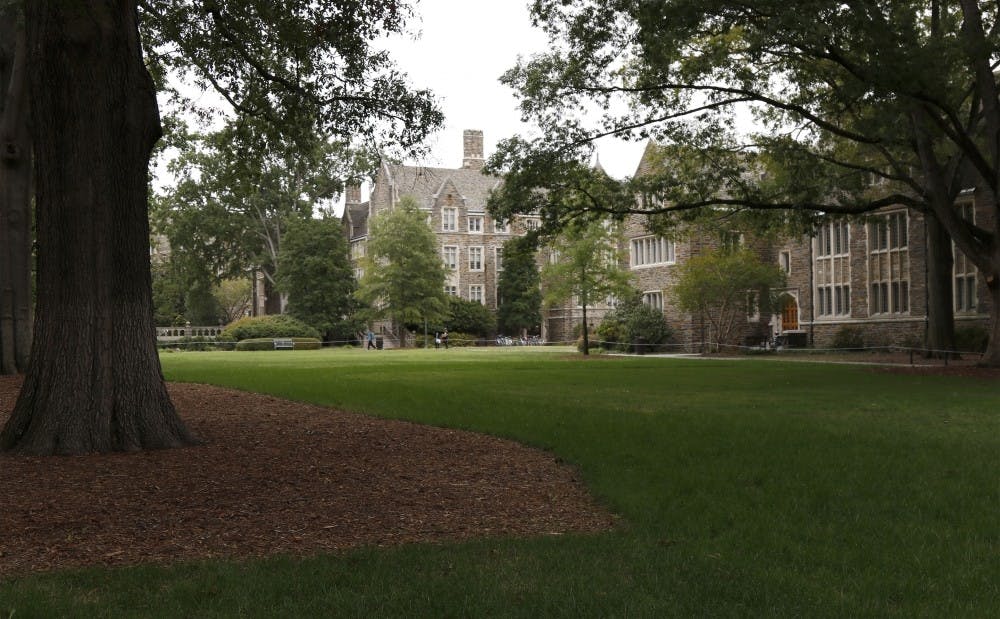Two years after Duke was first sued for mismanaging its employee retirement plan, another lawsuit has been filed alleging more mishandling of the fund.
The plaintiffs argue that Duke took revenue from its 403(b) plan and used it to pay employee salaries and benefits, a practice known as “self-dealing,” according to a press release. Self-dealing is prohibited under the Employee Retirement Income Security Act.
The class action suit—Kathi Lucas, et al., v. Duke University—was filed Aug. 20 by St. Louis-based law firm Schlichter Bogard & Denton. Two years ago, the same firm accused Duke of not curtailing the excessive fees and imprudent investing in its retirement plan. Lawyers found documents they allege demonstrate self-dealing.
“What we discovered in the documents is that some of the money was actually used to pay Duke itself for salary and fringe benefits of its human resource people,” said Jerome Schlichter, the lead attorney in the case.
Michael Schoenfeld, vice president for public affairs and government relations at Duke, declined to comment on the lawsuit.
Schlichter said that the self-dealing money came from expenses employees and retirees paid for recordkeeping and managing their portfolios. Duke then took some of those expenses, which already were “excessive” in his opinion, and used them for its own benefits, according to the lawyer.
The University’s Faculty and Staff Retirement Plan includes more than 37,000 Duke employees. Unlike 401(k) retirement plans, which are used by for-profit companies, 403(b) plans are designed for nonprofits, such as universities or religious organizations. As a result of their special status, 403(b) plans are supposed to have lower fees and fewer administrative hurdles.
Schlichter said the money in a 403(b) plan is the property of its employees.
“From professors to janitors to cooks, it’s their money,” he said.
He said that he has not seen this kind of self-dealing at any of the other universities he has sued.
There has not been a trial date set for either lawsuit, but Schlichter predicted they would occur next year. The court will decide if the two cases—one for excessive fees, too many options and poor investments and the other for self-dealing—are tried together or separately. Schlichter said he tried to attach the self-dealing charge to the original lawsuit, but Duke refused.
“We expect to obtain full compensation for the losses that the employees and retirees have sustained and to reform the plan for the future to make sure the plan is run properly going forward,” he said.
Events leading up to latest lawsuit
In August 2016, Schlichter Bogard & Denton filed a class-action lawsuit against Duke alleging that the University’s retirement plan forced participants to pay excessive administrative and recordkeeping fees. The complaint—David Clark, et al., v. Duke University, et al.—argued that Duke failed to properly uphold its fiduciary duties by not providing the best service it reasonably could.
“Duke provides a range of options that give employees flexibility in designing retirement plans to meet their individual needs,” Schoenfeld wrote in August 2016. “These investments are reviewed and carefully managed in accord with federal law to provide low costs and good outcomes for our employees.”
Duke attempted to have the suit dismissed in May 2017 and has previously argued that the plaintiffs did not invest in the funds being disputed and that the case has no standing, but Judge Catherine Eagles of the U.S. District Court for the Middle District of North Carolina did not dismiss it.
This past March, the University announced plans to revamp its retirement plan. It added Fidelity as the primary plan provider and dropped Vanguard and VALIC in an effort to consolidate the number of options and reduce fees—the original cause of the complaint.
Duke is not the only university under legal scrutiny for mismanaging its 403(b) retirement plan. Within a span of weeks in August 2016, Schlichter and his firm filed mutliple other suits against prestigious universities including Yale University, Vanderbilt University and Massachusetts Institute of Technology.
“Apparently some of [these institutions] thought they weren’t governed by the law that makes them fiduciaries and makes them liable for such fees and that history has been there for many universities for many years,” Schlichter said, adding that his firm was the first to bring a lawsuit against a university for mishandling its retirement plan.
His suit against University of Pennsylvania was dismissed in September 2017, and a judge ruled in favor of New York University in July 2018. Schlichter said he was planning to appeal those decisions.
The rest of the cases, including Duke’s, are still pending trial.
“We intend to pursue this case, as with all cases that we handle, to it’s conclusion on behalf of the employees and retirees to obtain full compensation for them, no matter how long it takes and no matter what resources are needed,” Schlichter said.
Get The Chronicle straight to your inbox
Signup for our weekly newsletter. Cancel at any time.

Jake Satisky is a Trinity senior and the digital strategy director for Volume 116. He was the Editor-in-Chief for Volume 115 of The Chronicle.

